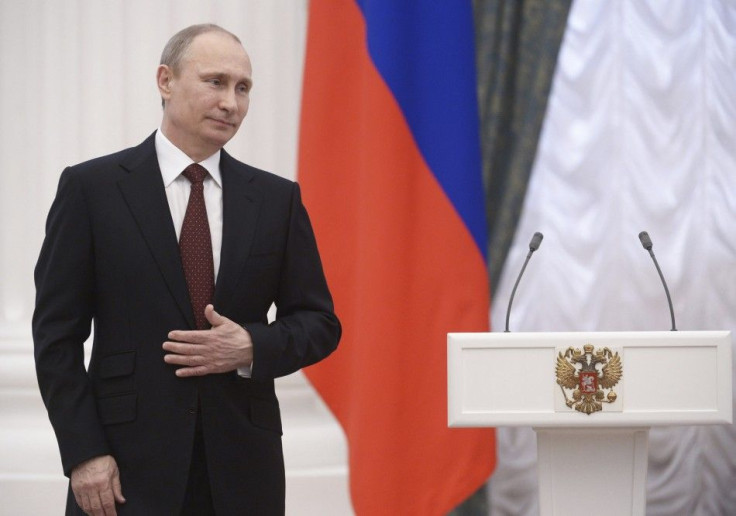Malaysia Airlines MH17: EU Feared Won't Ever Enforce Sanctions on Russia; All Talk, No Force

Five days after the downing of Malaysia Airlines MH17 over eastern Ukraine, leaders of the European Union finally met on Tuesday to deliberate sanctions against Russia. They agreed imposing travel bans against high-ranking Russian government officials as well as mounting a new round of asset freezes.
But being highly dependent on Russia's large supplies of natural gas stopped the EU leaders to target the country's major companies and industries.
"What can we do?" the New York Times quoted Niels Romijn, a Dutch civil servant. "We must be realistic; there is just not much we can do."
Under pressure to display resolve and common purpose, the leaders of the 28 European Union member-states are prepared to target Russia's arms, energy and financial sectors if it continues to destabilize Ukraine. Russia had been accused as the major culprit behind the downing of Malaysia Airlines MH17, having been the one that supplied the missile that was used to shred the commercial airliner that killed 298 lives.
EU officials said on Tuesday the list of Putin "cronies" to be sanctioned will be ready by month's end.
But sanctions on "access to capital markets, defence, dual use goods, and sensitive technologies" will depend on Russia's cooperation with the MH17 investigation. The EU also wants Russia to stop supplying weapons, equipment and militants across the border. It will likewise be ordered to withdraw its troops from the border area.
Such measures, unfortunately, were not new.
Read: Embattled Malaysia Airlines Could Run Out of Cash 2015; Diverts Plane Over Another War Zone After MH17 Crash
"Almost every European state has voluntarily handed over power to Mr. Putin, allowing him to play countries against each other," Marietje Schaake, an influential member of the European Parliament, said. "We should choose for energy independency, for principles, human rights and rule of law. But that is not what we are doing now."
On Monday, German Chancellor Angela Merkel said communication lines with Russia should remain open.
France said the proposed sanctions against arms sales to Russia would jeopardise its weapons industry. France is building two Mistral-class helicopter ships for Russia's military. If they cancel, they would need to reimburse the Russians 1.1 billion euros, or $1.5 billion.
Svitlana Khutka, an associate professor of sociology at National University of Kyiv-Mohyla Academy in Kiev, told New Work Times she doubts they will ever impose the so-called strict sanctions at all.
"Why? Because they say they are very concerned, deeply concerned, very, very concerned, very much concerned, so very deeply concerned," she said in an interview. "You just don't believe that they are concerned, because it is quite evident that they have their own interests."
But Europe vowed it will put down its foot this time.
"I think Europe has woken up," the Guardian quoted Carl Bildt, the Swedish foreign minister. "None of these things - capital markets, defence, dual use items, has ever been mentioned in EU documents. Some of this will happen."
Philip Hammond, the new UK foreign secretary, told the BBC he expects the "process now moving forward at pace unless the Russians deliver on all the demands we have made."





















